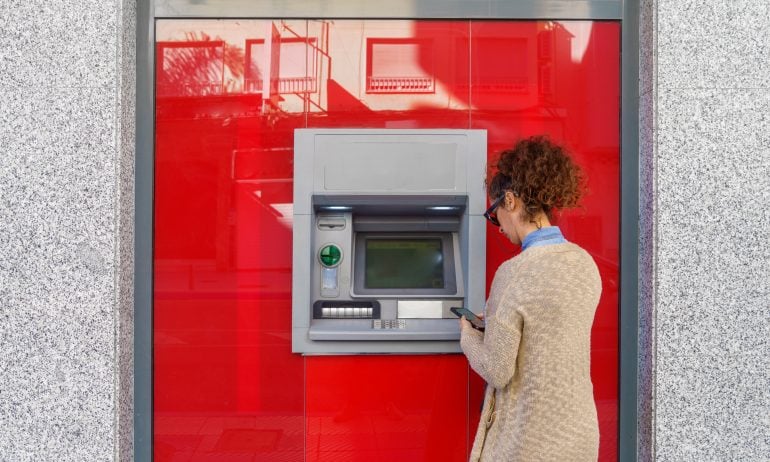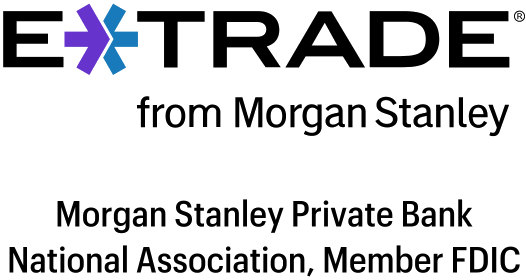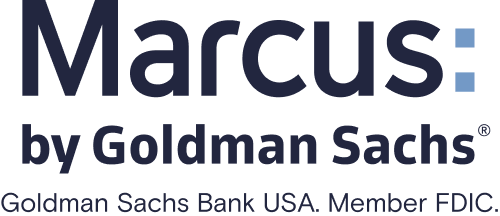Pros and Cons of Keeping Multiple Bank Accounts at Different Banks
It can be challenging to manage accounts at multiple banks, but there are benefits, like getting additional features.

Many, or all, of the products featured on this page are from our advertising partners who compensate us when you take certain actions on our website or click to take an action on their website. However, this does not influence our evaluations. Our opinions are our own. Here is a list of our partners and here's how we make money.
Savings account interest rates are higher than they’ve been in years, and some banks are making savings and checking features even more enticing with perks like ATM fee reimbursement and early direct deposit. That might get you thinking about opening accounts at different banks — to take advantage of different benefits.
Also, after a handful of high-profile bank failures in recent years, you might wonder whether it’s wise to keep all your cash in one place anyway. But before you start moving your money around, it’s smart to weigh the pros and cons. Here’s what to consider about having multiple bank accounts across different institutions.
How many bank accounts should I have?
At minimum, it’s a good idea to have a checking account (for your spending money and for paying bills) and a savings account. If you want to save for the short term and the long term, or have different savings goals, consider setting up multiple savings accounts. According to a NerdWallet savings survey conducted online by The Harris Poll in March 2025, more than 1 in 5 Americans (21%) have multiple savings accounts for different financial goals. » MORE: See the best banks for multiple savings accounts
Why is it good to have multiple bank accounts at different banks?
You can mix and match the best features of different institutions. For example, maybe you want a checking account at a bank that has ATM fee reimbursements or two-day early direct deposit, and you want to keep other cash at your locally owned credit union that has branches near you. Or you want to open an account at an online bank that has high yields on its savings accounts and certificates of deposit.
You can better manage your money and build your savings. By keeping your spending money at one bank or credit union and your savings at another, you can make it easier to avoid dipping into savings. Separating your money can make it at least a little harder to access your emergency and long-term savings when you might be tempted to use those funds for something else.
» SEE: The best high-yield online savings accounts with consistently high rates
You can have more of your money covered by federal insurance. If you have more than $250,000 to deposit, spreading your accounts around to different federally insured banks and credit unions can help make sure more of your money is protected in the event of a bank failure. (Skip ahead to read more about federal insurance limits.)
Forbright Bank Growth Savings

4.25%
$0

Member FDIC
Axos ONE® Savings

4.66%
$1,500

Member FDIC
Varo Savings Account

5.00%
$0

Member FDIC
E*TRADE Premium Savings

4.00%
$0
Why is it bad to have multiple bank accounts at different banks?
It can be tough to keep track of several accounts. The more accounts you have, the more account numbers and balance amounts you have to manage. And unless you keep careful and updated records, it might be challenging to also maintain all the usernames, passwords and other details such as beneficiaries and scheduled transfers or withdrawals.
» MORE: Get guidance on how many savings accounts you should have
It could be harder to avoid fees. Some banks have minimum balance, spending or direct deposit requirements. If you spread your money across different accounts, it might be harder to meet the minimums, and that could trigger a fee.
Chasing high promo rates could mean missing better yields later. Some banks offer high promotional annual percentage yields to reel in new customers, but those high APYs can drop after the promo ends. If you open multiple accounts to grab featured rates, you might end up with cash sitting in places that no longer earn much after the promo period is over. Read up on the terms and conditions and understand how the rates work to ensure you’ll get what you expect. You may be better off keeping your money in one account that has a strong ongoing APY.
» COMPARE: The best places to save money and earn interest
Does FDIC insurance cover multiple accounts at the same bank?
Insurance from the Federal Deposit Insurance Corp. covers up to $250,000 per FDIC-insured bank, per depositor and per ownership category (such as a single account, retirement account or trust account). Your money is protected, up to the insured amount, in the event of a bank failure.
Credit unions are federally insured through the National Credit Union Administration (NCUA). Accounts are covered up to $250,000 per insured credit union, per share owner, and for each account ownership category.
» LEARN: All about FDIC insurance ownership categories
What should I do if I want to insure more than $250,000?
There are several ways to insure more than the FDIC insurance limit of $250,000. For example, joint accounts are insured up to $250,000 per person, so if an account is co-owned by two people, the full amount could be covered up to $500,000. Some other ways to consider are opening an account that’s a different ownership category, opening a cash management account with a higher insurance limit or splitting your money among different banks.
Should I have checking and savings accounts at different banks?
Keeping accounts at multiple banks can help your financial health. Having your checking account at a different bank than your savings means your savings will be less accessible for everyday spending. That can help you avoid touching it, which in turn can help you stay on track to reach your goals.
» Get a cash bonus for opening a new account: See the best bank promotions
Whether you want to better insure your money or simply want to cherry-pick the best features of different banks, opening accounts at multiple banks is a solution that could benefit you as long as you’re willing to manage the account upkeep.
















